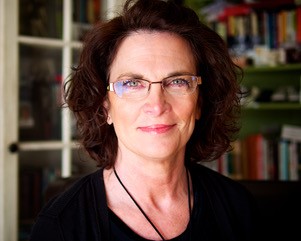GUEST COLUMN
By By Reba J. McMellon, M.S., LPC
Mental health awareness has almost become a buzz phrase. You hear it in in the Olympics, certainly in response to the pandemic, and “Hipsters” are all into it.
Being aware of one’s mental health is one thing. Doing something about it is another.
Have you ever been told, “Maybe you should go talk to somebody?” It’s a suggestion that can set you back on your heels. I was told this during a conversation and my first thought was, “I am talking to somebody, I’m talking to YOU.”

Having someone suggest you could benefit from counseling can be off-putting. However, counseling is a valuable service and most people would do well by giving it a shot. But where do you begin? How do you find a good counselor or psychologist? It’s not an easy subject to approach. The following are a few indications that professional counseling is warranted:
• If the problem has been bothersome for years and no matter whom you talk to it keeps coming back.
• If you suffer silently and feel embarrassed by emotional symptoms that are uncomfortable to discuss with people you know.
• You have a problem that is seriously interfering with your quality of life.
Research has repeatedly shown the number one factor that predicts positive outcome in counseling is the connection between counselor and client. You will know within the first three visits if the counseling relationship is working for you. Do not let guilt or vulnerability be a factor in maintaining a therapeutic relationship that is uncomfortable. Don’t fall into the “it must be me” trap.
If you like your physician, ask if they could provide a referral. Your minister or clergy should also have a list of counselors they would recommend. An even better way to find a counselor is to ask a friend who has been to counseling for a referral. Referrals can come from anyone you trust with good sense.
A second way to find a counselor to talk to is through your health insurance. Ask what providers they cover and about their credentials.
Ask the counselor a few questions. For instance, ask about his or her office hours. Ask about licensure, credentials and experience. What university did they attend? Tell them just a little something about your issue, and then ask what their approach to counseling is. Sometimes counselor’s will only answer these question in the first session, but be sure to ask them.
If you are steeped in a certain religion that is important to you, tell them this ahead of time and ask if this would pose any problem.
The things you should listen for are:
• Openness to answering your questions. This does not mean going into detail about your presenting problem, just openness to answering your questions and concerns.
• Does it feel like you can connect with this person? If they give you the “willies” on the phone, they are likely to give you the “willies” in person.
• Does it sound like they would welcome you as a client? Haughty or distant are not good signs.
Prices vary due to the level of education but not necessarily due to the quality of service. Again, your health insurance may be a help in in this area.
The most important point is that some people are truly wonderful matches and others have the credentials and training but lack the style or personality you need. Consider going outside your immediate geographical range, if necessary.
Try not to be derailed by the “stigma” of seeking professional counseling. Emotional healing and behavior change can lead to a healthier spiritual and physical life.
The healthiest people I know are the ones who have sense enough to want help, to seek it out and stick with it.
(Reba J. McMellon is a freelance writer, columnist and consultant. She lives in Jackson and can be reached at rebaj@bellsouth.net.)
